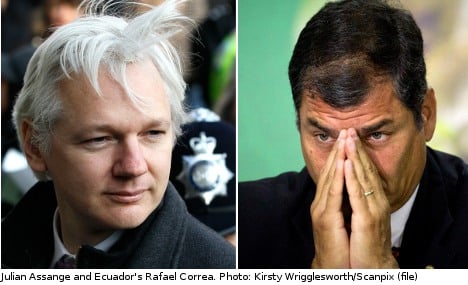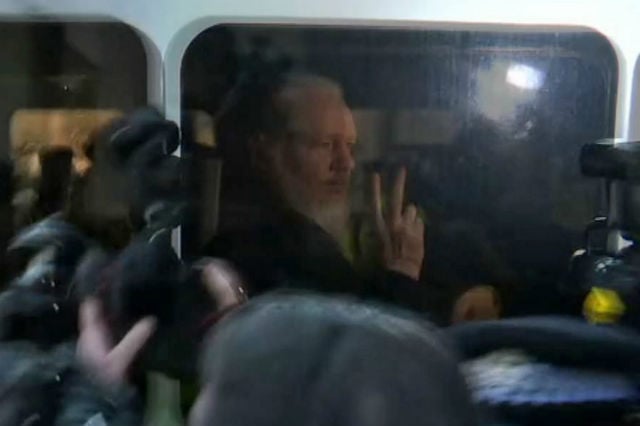“More than 10,000 emails have been received at the moment,” Ecuador’s Minister of Foreign Affairs said in a public statement from Quito.
“Thousands of people asking the Ecuadorian government to accord asylum to Julian Assange, founder of Wikileaks, sent a steady stream of messages saying why they support him,” the statement added.
Quito received a demand for asylum from the Australian national, who took refuge in London’s Ecuadorian embassy on June 19, escaping extradition to Sweden, where he has been charged with two cases of sexual assault.
Assange worries that from Sweden, he will be extradited to the United States to face possible espionage charges, after releasing more than 250,000 American diplomatic cables on the Wikileaks whistleblowing site.
A letter in favour of the request for asylum was also addressed to Ecuadorian President Rafael Correa by the organization Just Foreign Policy, a US group advocating for civil liberties.
Among the signatures on the petition were those of film directors Michael Moore and Oliver Stone, actor Danny Glover and philosopher Noam Chomsky.
Maintaining that Assange’s only crime was journalism, the authors of the letter denounced what they believe to be an attack on freedom of the press and the public’s right to know the truth about American foreign policy.
Correa responded to the call for asylum Tuesday, saying that Quito must first “analyze the judicial process in Sweden” and that “these things take time. It’s not that simple.”
That same day, Correa met with his ambassador to Britain, Anna Alban, and Foreign Minister Ricardo Patino to discuss Assange’s request.
Correa, a leftist leader critical of Washington, has already expressed sympathy for the Wikileaks founder and said that his country will not accept instances of “political persecution.”



 Please whitelist us to continue reading.
Please whitelist us to continue reading.
Member comments